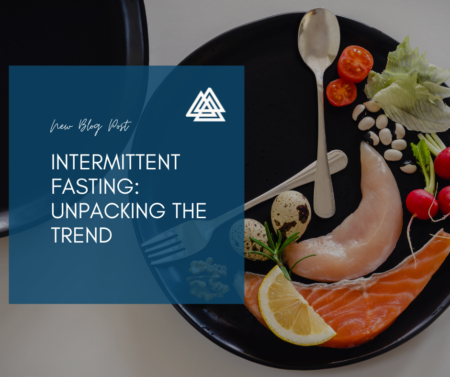 In recent years, intermittent fasting has gained traction as a popular approach to weight loss and improved health. With numerous purported benefits, including weight management, improved metabolic health, and potential longevity, it’s no wonder why this eating pattern has garnered attention. In this blog post, we’ll explore the science behind intermittent fasting, its potential benefits and drawbacks, and how to incorporate it into your lifestyle safely.
In recent years, intermittent fasting has gained traction as a popular approach to weight loss and improved health. With numerous purported benefits, including weight management, improved metabolic health, and potential longevity, it’s no wonder why this eating pattern has garnered attention. In this blog post, we’ll explore the science behind intermittent fasting, its potential benefits and drawbacks, and how to incorporate it into your lifestyle safely.
Understanding Intermittent Fasting: Explaining the concept of intermittent fasting and the various fasting protocols, such as the 16/8 method, 5:2 diet, and alternate-day fasting.
- 16/8 Method: This is one of the most popular forms of intermittent fasting. It involves fasting for 16 hours each day and restricting your daily eating window to 8 hours. For example, you might eat your meals between 12 pm and 8 pm and fast for the remaining 16 hours until noon the next day.
- 5:2 Diet: In this approach, you eat normally for five days of the week and restrict calorie intake to about 500-600 calories for two non-consecutive days. On fasting days, it’s recommended to spread out your calorie intake throughout the day.
- Alternate-Day Fasting: As the name suggests, with this method, you alternate between days of normal eating and fasting. On fasting days, you may either consume no calories or significantly restrict calorie intake (e.g., consuming only 500 calories). On non-fasting days, you eat as you normally would.
- Eat-Stop-Eat: This approach involves fasting for a full 24 hours once or twice a week. For example, you might finish dinner at 7 pm one day and then not eat again until 7 pm the following day.
- Warrior Diet: This method involves fasting during the day and consuming one large meal at night. The fasting period typically lasts for 20 hours, followed by a 4-hour eating window in the evening.
Intermittent fasting has gained popularity in recent years, and research suggests it may offer several potential health benefits:
- Weight Loss: Intermittent fasting can help reduce calorie intake and promote weight loss by creating a calorie deficit. During fasting periods, the body taps into stored fat for energy, leading to fat loss.
- Improved Metabolic Health: Intermittent fasting may improve various markers of metabolic health, including insulin sensitivity, blood sugar levels, and cholesterol levels. It can help lower insulin levels, reduce inflammation, and regulate blood lipid profiles.
- Enhanced Brain Function: Some studies suggest that intermittent fasting may have neuroprotective effects and support brain health. It may promote the production of brain-derived neurotrophic factor (BDNF), a protein that plays a role in cognitive function, learning, and memory.
- Increased Autophagy: Autophagy is a cellular process that removes damaged or dysfunctional components, helping to maintain cellular health and prevent diseases. Intermittent fasting can stimulate autophagy, potentially reducing the risk of age-related diseases and promoting longevity.
- Cardiovascular Health: Intermittent fasting may benefit cardiovascular health by improving blood pressure, reducing inflammation, and lowering levels of risk factors such as LDL cholesterol and triglycerides. These effects may contribute to a lower risk of heart disease.
- Longevity: Some animal studies have suggested that intermittent fasting may extend lifespan by activating cellular repair mechanisms, reducing oxidative stress, and improving metabolic health. While more research is needed in humans, these findings are promising.
- Potential Cancer Protection: Some research indicates that intermittent fasting may have anti-cancer effects by inhibiting tumor growth, enhancing the body’s ability to repair DNA damage, and reducing inflammation. However, more studies are needed to confirm these effects in humans.
- Simplicity and Convenience: Intermittent fasting can be relatively simple to implement and may offer convenience by reducing the need for frequent meal planning and preparation. Many people find it easier to stick to than traditional calorie-restricted diets.
It’s important to note that while intermittent fasting shows promise for improving health outcomes, individual results may vary, and more research is needed to fully understand its long-term effects. Additionally, intermittent fasting may not be suitable for everyone, particularly those with certain medical conditions or specific dietary needs. Consulting with a healthcare professional before starting any fasting regimen is recommended.
